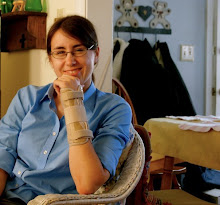If confirmed, Judge Sotomayor would be replacing Associate Justice David Souter, the quirky, reclusive, liberal justice from New Hampshire. Souter was supposed to be a "home run" for conservatives, with his limited paper trail and apparent conservative leanings when the first President Bush nominated him. Instead, although he did win an easy confirmation in the Senate, Souter quickly established himself on the moderate to liberal end of the judicial spectrum. In his book The Nine: Inside the Secret World of the Supreme Court, CNN senior legal analyst Jeffrey Toobin described Souter's judicial philosophy as aligning most closely with that of Justice John Marshall Harlan II:
[Harlan] believed that law existed to preserve the stability of society and that adherence to precedent best guaranteed a limited and predictable role for the judiciary. Above all, he believed in the rule of stare decisis. Like Harlan, Souter put his faith in the common law, the accumulated wisdom of judges and courts going back to the Middle Ages. (Toobin 45)The two also believed that the people's rights "were not limited by the precise language of the Constitution" and in libertarian-esque ideals-- the importance of freedom from restrictions of government.
To all appearances, based on a survey of her more significant appellate decisions conducted by SCOTUSblog, Sotomayor's judicial leanings tend along the same lines as Justice Souter's. While her philosophy seems largely to emanate from a different starting place, it will likely keep Sotomayor solidly on the Court's left in all but a few cases. Indeed, those cases that reached the Supreme Court after going through her and the rest of the Second Circuit, though in many cases overruled, have already found that her opinions align with the left wing of the current court.
Whereas (in my estimation) Justice Souter's judicial philosophy originates from his long legal service in "Live Free or Die" New Hampshire, Judge Sotomayor's come from her lifelong experience as a Latina woman in New York. It seems evident that the two most compelling reasons for Obama to nominate her were her stellar and diverse resume and her personal story, which evokes considerable empathy and admiration from most listeners. Prosecutor, commercial lawyer, trial judge, and appellate judge...daughter of Puerto Rican immigrants who worked hard to make a better life for herself...graduated from the top of her class at Princeton and served on the Yale Law Review...Sotomayor's life story is compelling and admirable.
In addition to her own personal story and resume, Sotomayor has a lot going for her politically. The Democrats really only require one Republican vote (assuming they hang on to all of their own) to avoid a filibuster, and that will likely come from one of the two senators from Maine, Susan Collins and Olympia Snowe, both moderates; or even possibly from Sen. Orrin Hatch (R-UT), a conservative from Utah who has nonetheless been fairly supportive of Sotomayor in her past confirmation processes. Republicans also have other political factors to take into account should they decide to really fight the Sotomayor confirmation. Chief among these is the significance of the first ["real"-- Benjamin Cardozo was Portuguese] Hispanic Supreme Court justice among the Hispanic community. To quote Tom Goldstein of SCOTUSblog, "It really is impossible to overstate its significance." Why does this matter so much that Republicans would want to take note? Because the Hispanic community is a large and growing voting bloc, and it would be highly inadvisable for the out-of-power Republicans to alienate them right now by opposing "their" candidate for the Supreme Court.
Inevitably, of course, there will be an opposition element that WILL find targets on which to hammer Sotomayor. According to Tom Goldstein, the top four charges will likely be (i) being an intellectual lightweight, (ii) being a liberal ideologue and "judicial activist," (iii) being "dismissive of positions with which she disagrees and (iv) being "gruff and impersonable." In my estimation, the third charge is most likely to stick-- but probably in the more extreme forms of being a "reverse racist," and letting her gender and ethnicity inappropriately color her decisions. The Ricci case lends to that impression, as does a lecture she gave at UC Berkeley Law School in 2001, in which she addressed the role gender and ethnicity play in judges' decisions, including hers. The confirmation hearings before the Senate Judiciary Committee will provide a forum for discussion of these matters, and hopefully she will easily smooth them out for a majority of reasonable people in (and out of) the Senate.
Sotomayor has been through the confirmation process twice before (when she was appointed as a district trial judge, and when she was appointed to the Second Circuit), so she will likely know how to deal with the Senate's judicial inquisitors. Both sides will likely need to be satisfied as to her views on abortion and gun rights-- her position on abortion is largely a mystery, with a very thin paper trail, and gun owners will definitely not like Sotomayor's past rulings on the Second Amendment. She once ruled, with two other judges, that "the right to possess a gun is clearly not a fundamental right," which may serve as an impetus for gun owners to mobilize against her and pressure red-state Democrats to oppose her as well.
Bottom line: To all appearances, barring some sort of major ethical problem coming to light, Judge Sotomayor should have a smooth confirmation process...if perhaps debate-filled, depending on how she chooses to answer the Judiciary Committee's inevitable questions on affirmative action, abortion, and gun rights. If confirmed, Sotomayor will likely continue in Justice Souter's mold, and will help maintain the status quo on the Supreme Court, adding diversity without shaking the current pro-conservative tilt of the nation's highest court.

No comments:
Post a Comment